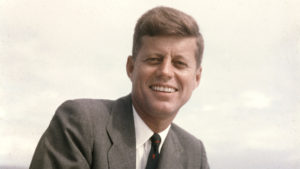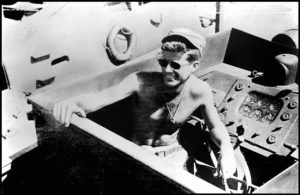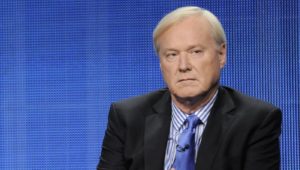Man Crush
Appeared in the Boston Globe, November 20, 2011
Chris Matthews once said that when he saw Barack Obama, he got all a-tingly in his leg. You can only imagine what happens when he thinks about his childhood idol, John F. Kennedy.

Imagine no more. Matthews, the rumpled and rowdy host of television’s “Hardball,’’ has just published Jack Kennedy: Elusive Hero, which makes it clear that Matthews has a huge man crush on the 35th president.
The book is more of a publishing event than some new and riveting volume in the growing library of books on the Family Kennedy. Seems that one in every four Americans has published a book on this royal family, and we have nearly a half century of memoirs by the late president’s aides, dentists, valets, and caddies, as well as some brilliant works of serious history.
That doesn’t mean that everything’s been said or that we are tired of this story. In the last couple decades alone, we’ve had Nigel Hamilton’s JFK: Reckless Youth, which detailed the man’s bouquet of infirmities and regimen of wonder drugs. Seymour Hersh looked at the underbelly of the dynasty with The Dark Side of Camelot. Then there was the masterful work of retired Boston University professor Robert Dalleck, whose An Unfinished Life stands as perhaps the best telling of the JFK tale to date.
Matthews leans heavily on these books as sources, and Jack Kennedy is more a work of synthesis than original research. Matthews did go back and interview a few of the usual suspects – many are no longer with us. But for the most part, he strings together his narrative from secondhand and thirdhand sources.
When he wrote his massive book on Robert Kennedy, historian Arthur Schlesinger – paraphrasing Lord Beaverbrook’s biographer A.J.P. Taylor – said that if it was necessary to regard Bobby Kennedy as evil in order to write his life, then he was ill-equipped.
Matthews could say the same. In the post-Reckless Youth age, it’s probably impossible to go back and fashion a “Camelot’’-style tale. But without apologizing and explaining away Kennedy’s prolific faults, Matthews still gets his tingles in as he recounts the saga of John Fitzgerald Kennedy’s life.

And what a story. At his best, Matthews creates a terrific narrative velocity as he recounts Kennedy’s World War II heroics, when his little PT boat was cut in half by a Japanese destroyer. Kennedy was a true hero, saving the men on his boat at great personal and physical cost.
Matthews shows us the young candidate building his political base one handshake at a time, all the while suffering crippling pain. He also details Kennedy’s torment in the late 1950s as politics demanded he disavow Senator Joseph McCarthy for his dangerous demagoguery, but family loyalty kept him from doing so. Matthews proves a compelling storyteller.
But he also makes the occasional bonehead move. He gets a few key facts wrong, including Bobby Kennedy’s middle name (it was Francis, not Fitzgerald). Now and then, a stylistic clunker seems to have slipped past the editor, such as this one: “ ‘He had the charm that makes birds come out of their trees,’ was a description she would give.’’ He also seems to ignore other sources for key events, such as the role Washington Post publisher Philip Graham played in putting together the Kennedy-Johnson ticket in 1960.

This book never pretends to be the definitive biography of Kennedy, but it does have its moments.
The biographies that came in the midst of post-assassination heartbreak didn’t stray too much into mother-and-father territory, so the passing of time allowed Matthews to color his wonder-years portrait of JFK with the dark back story of the demanding father who could never be pleased and the mother who withheld love.
Yet we also learn how both parents campaigned for their son to win the Pulitzer Prize for Profiles in Courage, using their ties to influential journalist Arthur Krock of The New York Times to ensure the boy wonder of the Senate would be honored and develop the national reputation he needed to make a serious run at the presidency.
Matthews also pulls together the threads of the relationship between Kennedy and young Richard Nixon. They arrived in Congress as part of the same class and had a close, mutually respectful friendship. Here again Matthews is mining material from an earlier author, but it is abridged from his own book, Kennedy and Nixon.
Jack Kennedy: Elusive Hero could be a worthy primer to introduce John F. Kennedy to curious members of a new generation, and might even inspire a few tingles. But in a way, the title is false advertising. There isn’t anything elusive about this hero.
